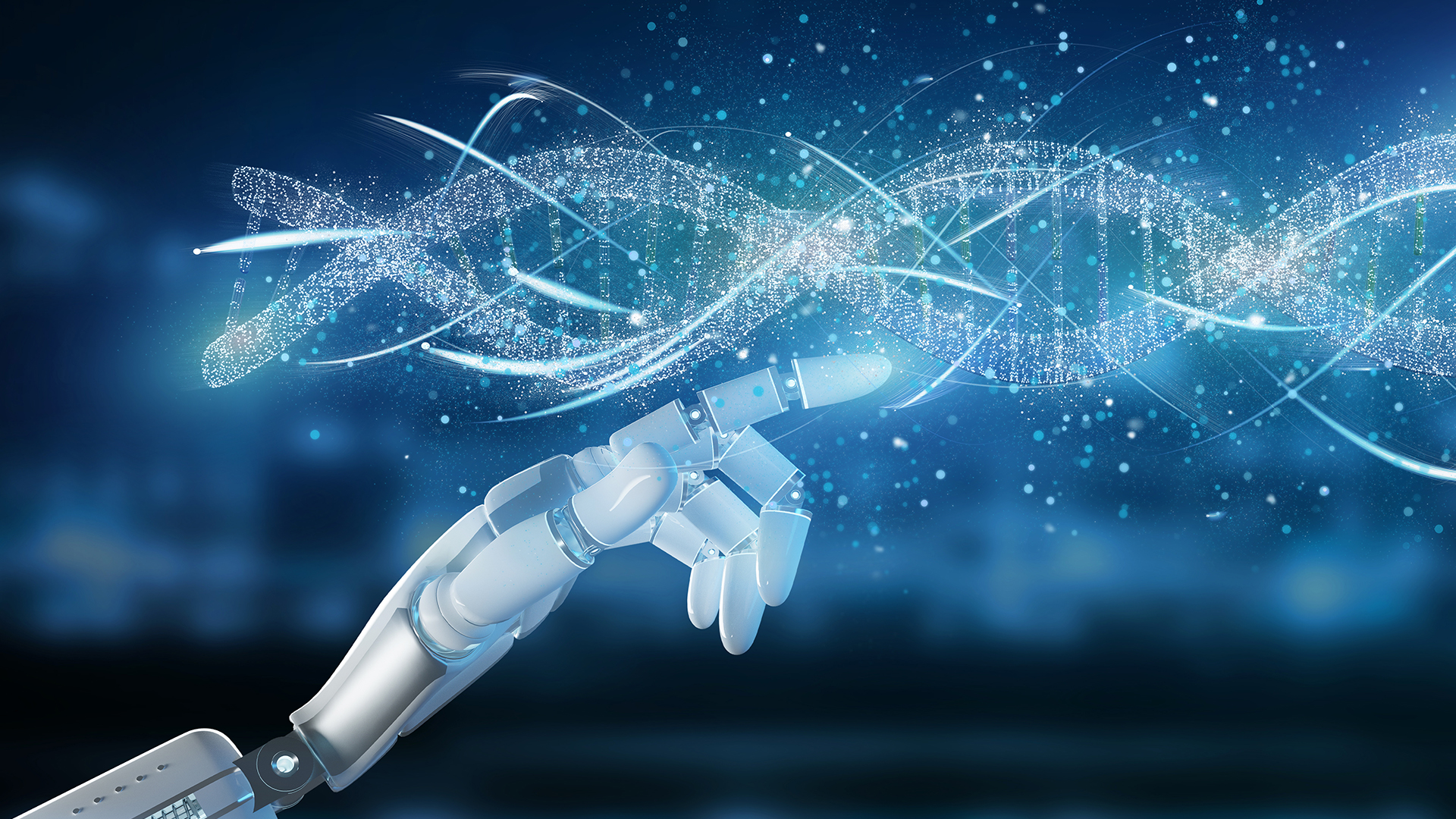Machine learning for protein interaction studies and an AI-driven strategy to understand brain tumor growth, among the granted projects.
During 2021, WASP and the SciLifeLab and Wallenberg National Program on Data-Driven Life Science (DDLS), the two largest research programs in Sweden, have launched a joint call with the aim of solving ground-breaking research questions across their different scientific disciplines. Olli Kallioniemi and Anders Ynnerman, program directors of DDLS and WASP respectively, describe the effort as a unique opportunity for leading researchers in the two different areas to meet and develop collaborations.
The call was open to projects led jointly by one faculty member from any of the SciLifeLab research areas: Cell-and Molecular Biology, Evolution and Biodiversity, Precision Medicine and Diagnostics, or Epidemiology and Infection Biology, together with one faculty member from any of the WASP research areas: Autonomous Systems, Software, or AI. Aside from this, the researchers were given free reins to form collaborative research questions.
On June 11, DDLS and WASP arranged a joint webinar, where researchers from their respective faculties could meet and share information about their research areas of interest. The webinar was well-attended, involving 280 participants from both disciplines. To further promote collaboration ideas, a common database was established, where the researchers could read and share research abstracts.
The DDLS-WASP joint call turned out to be very successful with 72 applications, involving 144 faculty members.
“There were many excellent applications to this call, and the joint committee has worked hard with the challenging task to pick just a few of the large variety of excellent multi-disciplinary projects. The key point here, was to explore biological problems, but also to address significant data science challenges”, says Olli Kallioniemi.
In total, 15 applications were awarded grants for two-year projects. These projects encompass several different areas. In one project, machine learning is used as a tool to understand protein-protein interactions, and in another, an AI-driven strategy is used to define genetic patterns involved in brain tumor growth. The granted projects can be viewed as the foundation of a new research society, where data science and life science can meet to create unique resources of competence and technical abilities, which in turn will lead to synergy effects that will benefit the entire research community.
“I am convinced that joint DDLS-WASP teams will be in a unique position to work on some of the most challenging research problems in AI, Autonomous Systems and Software with a focus on urgent applications in life science”, says Anders Ynnerman.
In the light of the large interest for the joint call, WASP and DDLS are currently discussing further common efforts.
The granted projects are listed below. More information about the projects will be available on the DDLS and WASP websites.
Granted DDLS/WASP joint projects 2021
Multiscale dynamics of biomolecules from cryo-EM
Applicants: Andén, Joakim (KTH), Lindahl, Erik (SU)
Deep learning for protein-protein interactions
Applicants: Elofsson, Arne (SU), Azizpour, Hossein (KTH)
Data integration via auto-encoders with biological constraints
Applicants: Gustafsson, Mika (LiU), Jörnsten, Rebecka (GU/CTH)
Self-driving microscope for rare cell state identification and tracking in live cell imaging
Applicants: Jaldén, Joakim (KTH), Lundberg, Emma (KTH)
Massively parallel in vivo gene editing and AI modeling to decipher brain tumor invasion
Applicants: Nelander, Sven (UU), Jörnsten, Rebecka (GU/CTH)
Visualization and de-identification of biobank data to propel precision medicine research
Applicants: Rosvall, Martin (UmU), Melin, Beatrice (UmU)
Transforming Breast Cancer (TransformBC)
Applicants: Smith, Kevin (KTH), Foukakis, Theodoros (KI)
Understanding the human immune cell interaction network
Applicants: Brodin, Petter (KI), Dimarogonas, Dimos (KTH)
HUDI: Huge Complex Diagnostic Imaging Data: Towards personalized models in the clinical workflow
Applicants: Ebbers, Tino (LiU), Hotz, Ingrid (LiU)
Learning pharmacometric model structures from data
Applicants: Karlsson, Mats O (UU) Bernhardsson, Bo (LU)
A Causal Map of the Cell
Applicants: Lappalainen, Tuuli (KTH), Bauer, Stefan (KTH)
Novel AI methods for experimentally constrained protein structure prediction
Applicants: Lindsten, Fredrik (LiU), Westenhoff, Sebastian (UU)
AI-Accelerated Oligonucleotide Drug Design
Applicants: Schliep, Alexander(GU/CTH), Matsson, Pär (GU)
Visual Analytics for Enhancing Quality and Trust in Genome-wide Expression Clustering and Annotation
Applicants: Uhlen, Mathias (KTH), Kerren, Andreas (LiU)
Data-driven application to protein-protein interactions
Applicants: Wallner, Björn (LiU), Amunts, Alexey (SU)
Published: December 2nd, 2021



